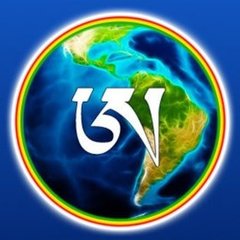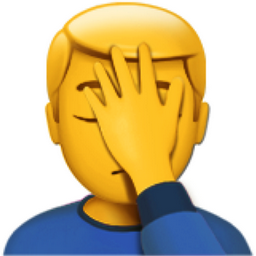-
Content count
11,808 -
Joined
-
Last visited
-
Days Won
274
Everything posted by steve
-
Happy New Year to you Luke, and to the rest of you Bums. May 2026 bring out the best in us!
-
A perfect and succinct instruction for meditation A description of the realization Transformation, nonduality, immortality
-
Yes, to the English ear heaven is a more accurate translation than sky in many cases
-
Yes, the meaning of 無为 is elusive. It is undefined, except in principle. I challenge you to find a meaning or translation that everyone will agree is perfect and correct. Meaning is in the reader, not in the text. It is in what the text makes us feel and think of based on our knowledge and conditioning. Even the greatest master's understanding cannot help me at all. I need to try my best to understand in a way that makes sense to me. I then need to put that understanding into action and see what happens, What does it mean to let nature take its course? Am I a part of that nature? If not, what am I? What is nature exactly? We all have different understanding and we manifest that understaning differently through our actions. Then there is the translation and how that can interfere or assist. The exact words in a translation are not that important. The way people relate to the word choice does matter. I've been enjoying Ursula LeGuin's translation lately, really beautiful. I love her first line.
-
How would you translate 天子 or 天师? How about words like 天命, 天問, or 天地? Or words like 理天, 氣天, and 象天 from 一贯道 (Yiguandao)?
-
One reason is that if I am trying to understand something translated from a different language, it does not help to use words that are never used in my own language and that I don't understand. Asking me to learn new words to translate foreign words and concepts compounds the difficulty. Just as I value your native understanding of the Chinese language and culture, ChiDragon, perhaps there is some value for you in the opinions of native English speakers? But at the end of the day, your translation - your choice. Do you grok my quale?
-
PS - some constructive criticism. If you are interested in an English translation that people can comprehend, that helps them understand the original, I would not use the words grok or quale. Only elderly science fiction fans would know the meaning of grok and quale is not a word in common usage.
-
I appreciate your effort but this is not an example of the same character used in the same line twice with different meanings.
-
In these examples the character translates the same in each case.
-
Is it often that the same character is used twice in a line having different meanings?
-
I'm curious why so many translators use "spoken" to translate the first line of Chapter 1. Is this implied in the syntax or by one of the characters?
-
I think there is great value in respect for and preservation of lineage. Methods that have been codified and handed down in an unbroken fashion, or documented in texts and rituals, can be wonderful guides and can help minimize wrong turns and obstacles. In the tradition I follow there is a very strong sense of the importance of unbroken lineage going back to the primordial Buddha, Kuntuzangpo. The secret hiding in plain sight is to recognize that this primordial Buddha is not a creator, not even a higher power. It is quite simply the core of who we are, and have always been, as sentient beings. We are never even a hair's breadth separate from "it." Similarly, the pantheon of gods, goddesses, yidams, dakinis, demons, and protectors, are convenient anthropomorphic representations of human qualities and potential. So even when we trace that lineage back through centuries or millennia of realized masters, and to our relationship with 'higher or lower power beings,' it ultimately comes to rest in me personally, and in my direct connection to the source of my lived experience and ultimate potential. Or something like that.
-
This may not be a symptom of progress. When the mind is truly quiet and open, not grasping, there are qualities that arise spontaneously - warmth, joy, compassion, and creativity, and there is some sense that anything satisfies. The absence of these energetic manifestations of the base is an indication that something is blocking our progress. Often it is an aberrant view such as nihilism or an unbalanced practice, prioritizing the mental over the physical and emotional, for example. Another common cause of this sort of deviation is bypassing, neglecting to bring our real life challenges onto the cushion, or neglecting to bring our practice into life's activities, in a way that supports genuine transformation. Something to consider if you feel like there is something lacking in your life or your practice.
-
Another factor is that those "serious things" are often quite secretive, sometimes for good reason, perhaps sometimes not. I know that I feel uncomfortable sharing things my teacher asked us to keep to ourselves, be that personal experiences and insights from practice, specific information, or practical instruction. In part this is because certain information can be useless, misinterpreted, or even harmful when pursued before the student is prepared. Not saying a focused and well--moderated neidan forum would necessarily be a bad idea but I do think there will be challenges.
-
A few masters of Daoist lineages escaped to Taiwan and elsewhere before being "re-educated" by the cultural revolution. Of course, this does not mean that "pure original Neidan" exists, whatever that may be or however that may be assessed. But a few Daoist lineages and their practices have survived the cultural revolution without being "re-constructed" by the CPC, mostly in Taiwan.
-
going about your daily business. becomes walking around the center green dragon twisting tail
-
One of my favorite modern parables is Anthony Demello's parable about Jesus, or someone like him... "A man invents the art of making fire and travels to cold, snow-covered regions where hill tribes shiver in the bitter cold. He teaches them how to make fire, showing them its benefits—staying warm, cooking food, building shelters. The people learn eagerly and are deeply grateful. But before they can thank him, he quietly slips away, uninterested in recognition or praise, embodying the nature of true greatness. He moves to another tribe and teaches them the same skill. His popularity grows, alarming the local priests who fear losing their influence. They poison him. When suspicion arises, the priests act swiftly to protect themselves. They place a portrait of the Great Inventor on the temple altar and create a liturgy to honor his name. The tools he used to make fire are enshrined in a sacred casket, believed to heal those who touch them with faith. The High Priest writes a biography of the Inventor, which becomes a Holy Book—celebrating his love, glorifying his deeds, and declaring his divine nature as a core article of faith. The priests ensure the Book is passed down through generations, interpreting its meaning authoritatively and punishing any deviation with excommunication or death. Over time, the rituals, worship, and veneration are meticulously preserved for decades, then centuries. Yet, despite all the reverence, there is no fire. The people have forgotten how to make it. They have ritual, gratitude, and devotion—but no transformation. Prayer is not a symbol of fire—it is fire itself, meaning inner transformation through awareness. If worship doesn’t lead to love, if liturgy doesn’t bring clearer perception, if God doesn’t lead to life, then religion is useless—breeding only division and fanaticism. The world doesn’t lack religion; it lacks love and awareness. True spirituality is not about rituals, but about awakening to reality, seeing through illusions, and allowing the fire of awareness to change your being."
-
To think that the supreme creator of all things, or some higher or lower power, could do no better than the writings of the various extant and extinct religious traditions, their moral failings, farcical inaccuracies, and biases, is sort of comical IMO. No personal attack intended Haribol, my apologies if you take any offense. In my opinion, scriptures are the product of the human mind. I think the more interesting question is what are the origins and factors that influence human creativity, insight, and imagination?
-
I thought it was cool!
-
I think ChiDragon has a future in US politics...
-
I will conclude the answer to my question is no, you have not studied neidan with a teacher. Thank you for sharing your personal conclusions on neidan, all perspectives have value to me.
-
Hi @ChiDragon, I have a genuine question for you. I don't mean any disrespect but your answer will help me understand your positions related to neidan. I believe you've posted here that you have studied taijiquan with a teacher at some point. My questions is, have you ever studied neidan or other forms of neigong (other than taijiquan) with a teacher? If so, can you share what system or lineage? I'm trying to understand where the "original Taoist method of Neidan" is coming from. Thank you
-
Temporarily
-
Not if you’ve mastered fetal breathing! 😉
-
I got cake, weed, and arrested! 🤣






